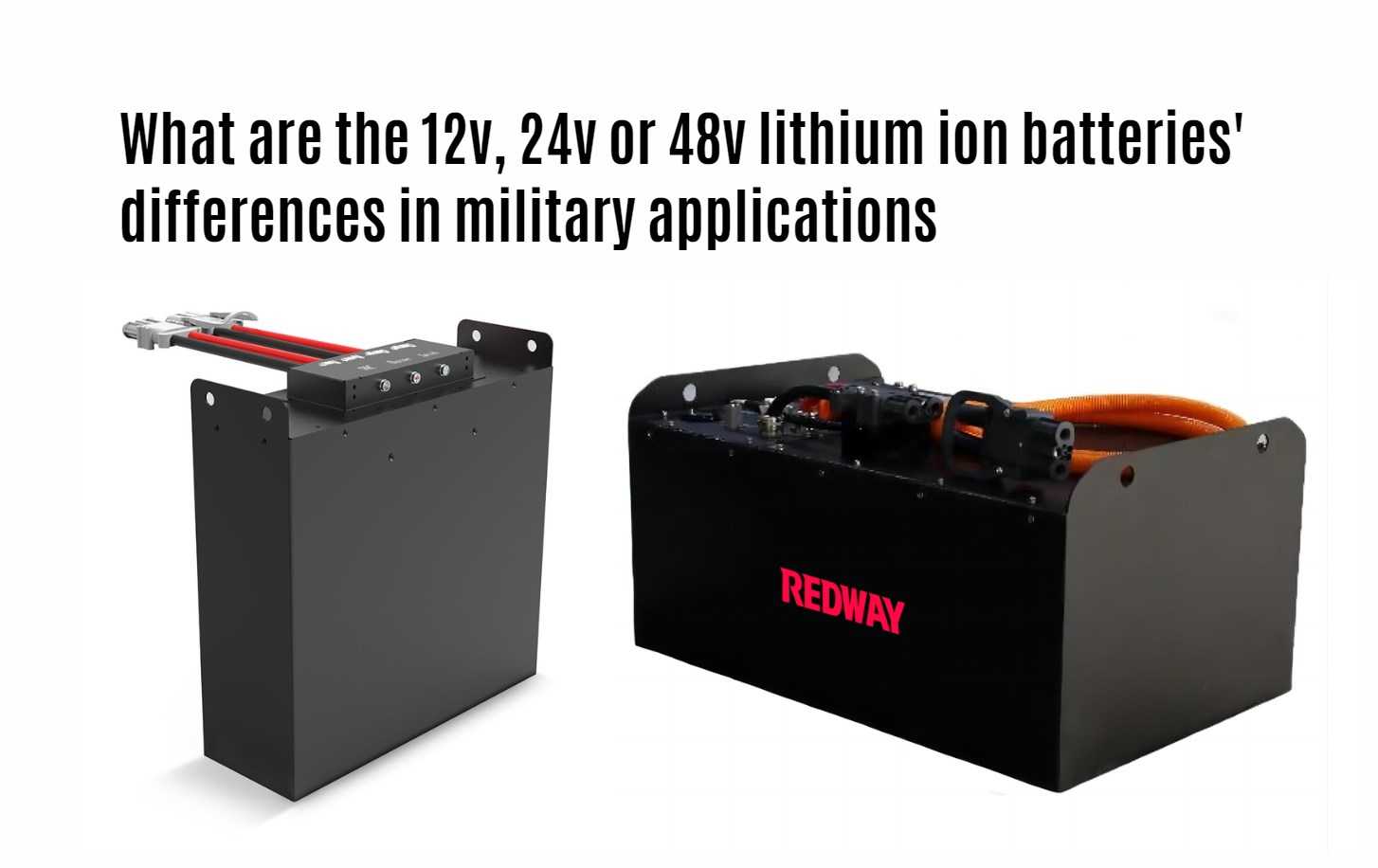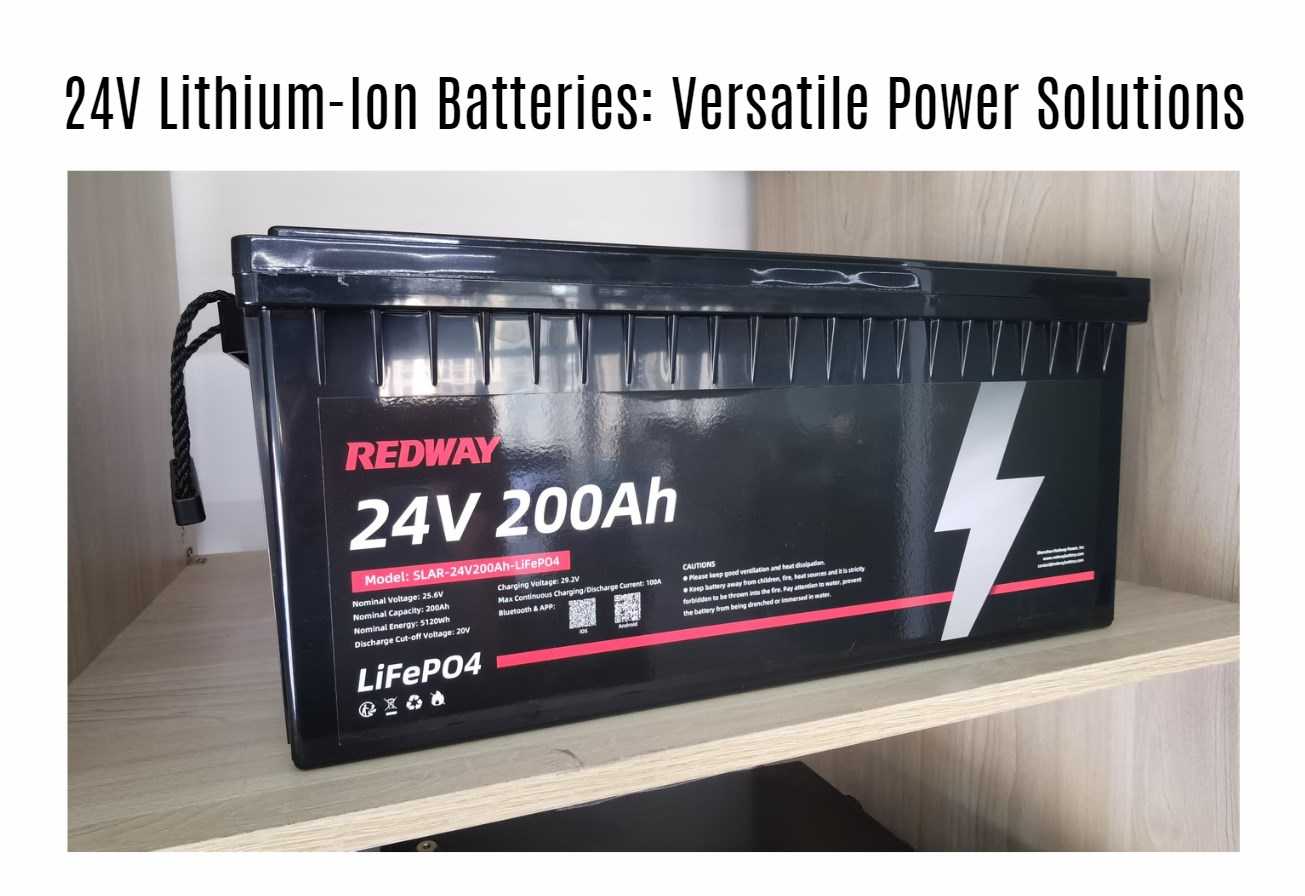In the realm of military technology, the selection of the appropriate lithium-ion battery—be it 12V, 24V, or 48V—is paramount for ensuring the optimal performance of various applications. This guide delves into the distinctive characteristics and applications of these batteries, providing a detailed comparison to aid in making informed decisions.
The Role of Voltage in Military Applications
The voltage of a lithium-ion battery directly influences its suitability for different military applications. Understanding the nuances of each voltage level is crucial for maximizing efficiency, power output, and reliability in the field.
12V Lithium-Ion Batteries: Compact Powerhouses
Applications
12V lithium-ion batteries are predominantly used in smaller military applications where portability and lightweight are essential. Common uses include:
- Portable Radios: Essential for field communication, these batteries ensure long-lasting power with minimal weight.
- Night Vision Equipment: Lightweight and reliable, 12V batteries are perfect for powering night vision devices, enhancing situational awareness during nocturnal operations.
- Other Small Electronics: Any small, portable device used by military personnel can benefit from the compact power provided by 12V batteries.
Advantages
- Lightweight and Portable: Ideal for applications requiring frequent mobility.
- Ease of Replacement: Widely available and easy to replace in the field.
24V Lithium-Ion Batteries: Versatile Power Solutions
Applications
24V lithium-ion batteries find their place in a broader range of military applications, including:
- Military Vehicles: From jeeps to light armored vehicles, these batteries provide robust power necessary for various operations.
- Unmanned Aerial Vehicles (UAVs): Essential for providing the high energy output needed for sustained flight times and carrying advanced payloads.
- Portable Power Systems: Used to power larger field equipment and provide temporary power stations during missions.
Advantages
- Higher Power Output: Suitable for more demanding applications that require sustained power.
- Moderate Size and Weight: Balances between portability and power, making it versatile for various uses.
48V Lithium-Ion Batteries: High-Energy Powerhouses
Applications
48V lithium-ion batteries are integral to large-scale military operations that demand the highest power output and longest run times. Key applications include:
- Electric Vehicles: Powering electric tanks, larger armored vehicles, and other high-power machinery.
- Power Storage Systems: Used in forward operating bases and other static installations to ensure a reliable energy supply.
Advantages
- Maximum Power Output: Capable of providing the most significant energy levels for the most demanding tasks.
- Extended Run Times: Ideal for operations that require prolonged energy supply without frequent recharges.
Durability and Special Features
Military-grade lithium-ion batteries are designed to endure extreme conditions. They come equipped with features such as:
- Extreme Temperature Resistance: Operate effectively in both high and low-temperature environments.
- Shock and Vibration Resistance: Maintain performance even in harsh, turbulent conditions.
- Moisture and Dust Protection: Ensures reliability in wet and dusty environments.
- Safety Mechanisms: Includes overcharge protection and advanced thermal management systems to prevent safety hazards like fires.
Choosing the Right Battery
Selecting between 12V, 24V, and 48V lithium-ion batteries hinges on several factors:
- Power Requirements: Match the battery voltage to the energy demands of the application.
- Environmental Conditions: Consider the operational environment and choose batteries designed to withstand specific conditions.
- Size and Weight Constraints: Evaluate the mobility requirements and select a battery that balances power with portability.
- Cost Considerations: Factor in budget constraints while ensuring that the battery meets the necessary performance criteria.
Conclusion
The choice of lithium-ion batteries in military applications is a critical decision that impacts operational efficiency, reliability, and safety. Understanding the specific needs of each application and the capabilities of 12V, 24V, and 48V batteries ensures that military operations are powered effectively, regardless of the challenges faced in the field.
Related Posts
- Which type of battery is best suited for RV campers? 12v 24v or 48v?
- What machines use 12V 300AH Lithium Ion Battery?
- What is the most common RV battery? 12v 24v or 48v?
- Utilizing Lithium-Ion Batteries for RV and Camping: A Comprehensive Guide
- Using LiFePO4 Batteries for RV and Camping: A Comprehensive Guide
- Understanding Battery Voltage Selection in Robotics




